How I became the ACO World Amateur Champion
He was the only unrated player in the field, the rest were all rated between 1600-1800. Ashwin Subramanian is an engineering manager in Intel Corporation. Even at the age of 40, being unrated, he still harboured the ambitions of getting better at chess. He took part in the ACO World Amateur Championships and won the event with a score of 7.5/9. Usually you get to see one or two games of a person winning a tournament, but here Ashwin was kind enough to share with us not only all of his games, but also the lessons he learnt from them. Along with it we also tell you about the chess journey of this highly dedicated individual.
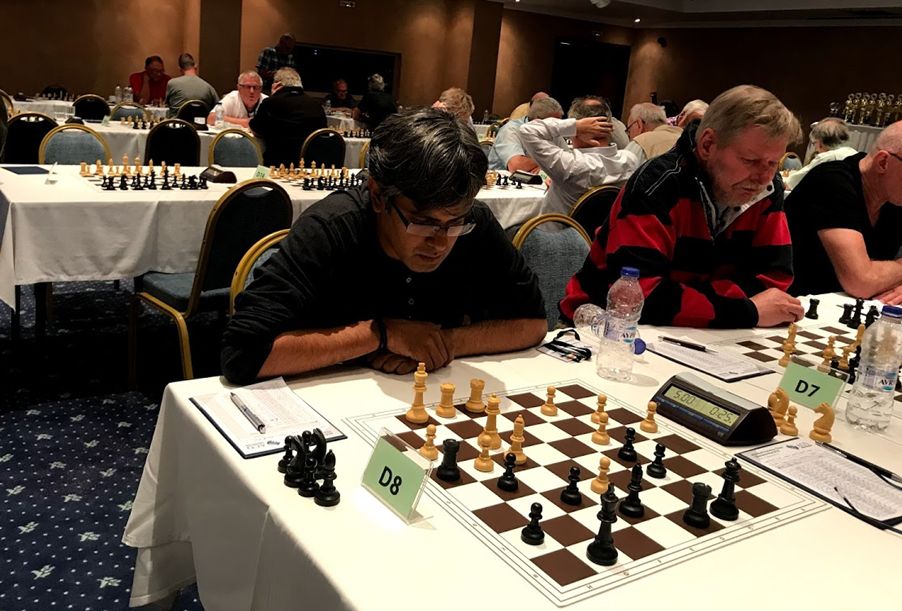
Ashwin Subramanian became the ACO World Amateur Champion 2018 in the rating category of 1600-1800. He achieved this feat in spite of being unrated. He was the only Unrated player in Group D amongst 80 others from 16 countries and his rating performance was 1991! Although there was a separate group for Unrated players (Group G: 0-1200 rating) he chose to play in Group D (1600-1800 rating) based on his online “informal” rating so that he can compete with players of similar strength. The tournament was held from May 13th to 20th in Kos Island in Greece and was a 9-round unrated event. Ashwin won the tournament with 7.5 points out of 9 rounds by winning 6 games and drawing 3 with no losses.
Final rankings:
| Rk. | SNo | Name | FED | Rtg | Pts. | TB1 | TB2 | |
| 1 | 81 | Ashwin Kumar Subramanian | IND | 0 | 7,5 | 45,5 | 42,0 | |
| 2 | 8 | Chilton James | ENG | 1788 | 7,0 | 48,0 | 44,0 | |
| 3 | 14 | Naumann Peter | GER | 1778 | 7,0 | 45,5 | 41,5 | |
| 4 | 19 | Beckmann Klaus | GER | 1773 | 6,5 | 48,0 | 44,5 | |
| 5 | 20 | Tkac Miroslav | SVK | 1769 | 6,5 | 44,5 | 42,0 | |
| 6 | 2 | de Bruijn Tjerk-Peter | NED | 1797 | 6,5 | 43,0 | 40,0 | |
| 7 | 63 | Mietz Wolfgang | GER | 1659 | 6,0 | 48,5 | 45,0 | |
| 8 | 5 | Klaiber Ingo | GER | 1793 | 6,0 | 46,5 | 42,0 | |
| 9 | 6 | van 't Hoff Kees | NED | 1793 | 6,0 | 46,0 | 43,0 | |
| 10 | 22 | Klaus Egon | GER | 1765 | 6,0 | 46,0 | 42,5 | |
| 11 | 3 | Ullrich Jan | GER | 1795 | 6,0 | 44,5 | 41,5 | |
| 12 | 57 | Inderbitzin Albert | SUI | 1676 | 6,0 | 39,0 | 36,0 | |
| 13 | 55 | Knudsen Jan Engelund | DEN | 1683 | 5,5 | 51,5 | 47,5 | |
| 14 | 64 | Moeseler Dietrich | GER | 1659 | 5,5 | 51,0 | 47,5 | |
| 15 | 4 | Gautier Marc | FRA | 1794 | 5,5 | 50,0 | 46,0 | |
| 16 | 42 | Bauer Dieter | GER | 1714 | 5,5 | 46,5 | 43,5 | |
| 17 | 53 | Fjellheim Benjamin | NOR | 1692 | 5,5 | 46,0 | 44,0 | |
| 18 | 18 | Kohler Werner | SUI | 1776 | 5,5 | 45,5 | 43,5 | |
| 19 | 29 | Kurzok Zenon | POL | 1756 | 5,5 | 45,5 | 43,0 | |
| 20 | 25 | Schneider Udo | GER | 1761 | 5,5 | 45,5 | 42,0 |
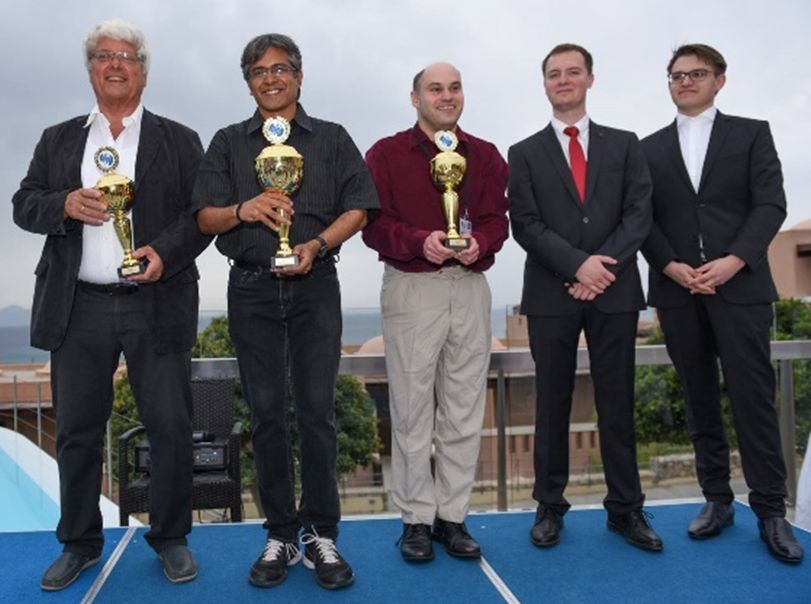
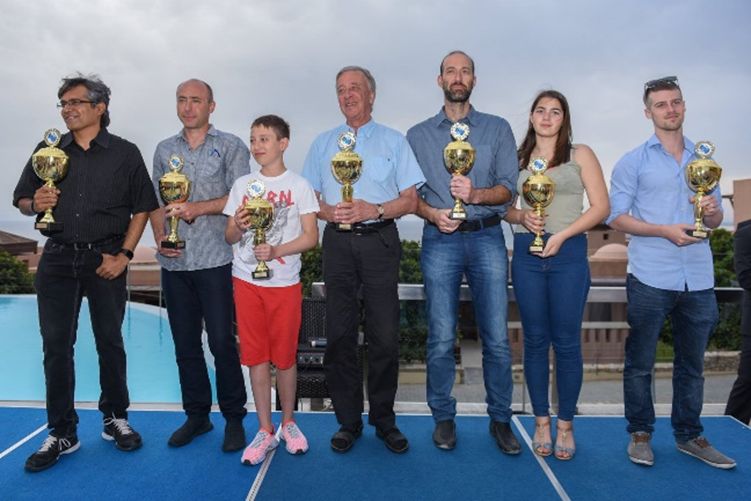
Interesting Positions from my Games
By Ashwin Subramanian
Game 1: Ashwin vs. Paul Schmitz (1718) - I blundered a piece in the opening and considered resigning after 10 moves – but played aggressively from there to reach this position where my opponent blundered!
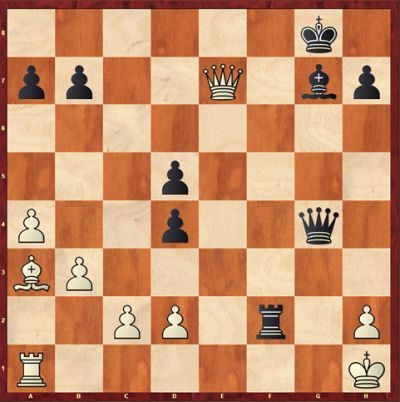
Lesson: Don’t resign prematurely as your opponents will also make mistakes and return favours!
Game 2: Ralph Becker (1758) vs. Ashwin
I mixed up the move order in the opening and struggled to finish developing my pieces – but eventually solved my opening problems and we reached this position with just 1 knight exchanged.
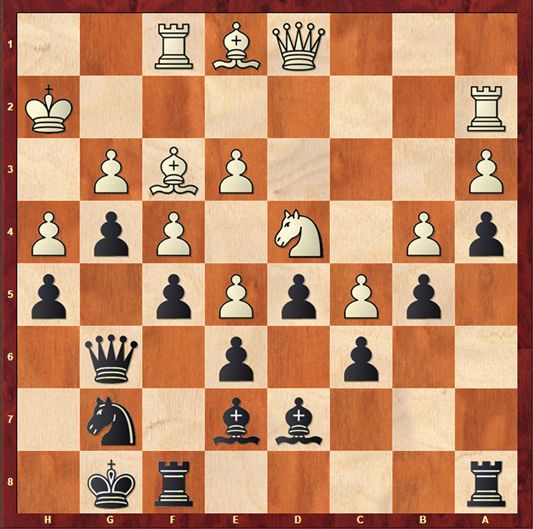
Lesson: Understand the purpose behind each move in the opening!!
Game 3: Ashwin vs. Paul Luidi (1748)
My opponent played passively and I quickly gained strong positional advantage that led to material gain!
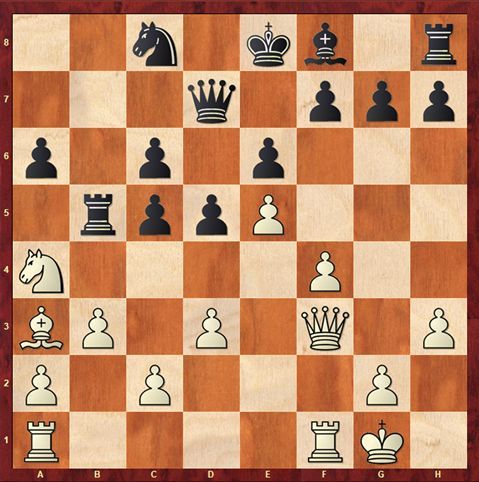
Lesson: Strive to play as actively as possible!
Game 4: Klaus Beckmann (1773) vs. Ashwin
I struggled in in the opening phase once again but eventually solved all the opening problems to reach the below position that seems equal and my opponent offered a draw.
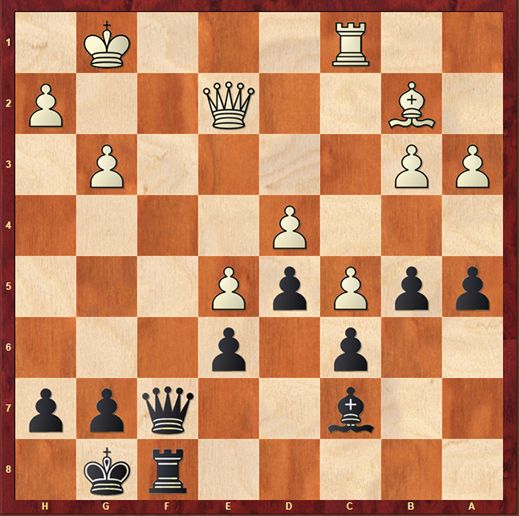
Lesson: Avoid initiating trades and keep major piece(s) on the board if you want to prolong the fight to increase chances!
Game 5: Ashwin vs. Loffler Helmut (1777)
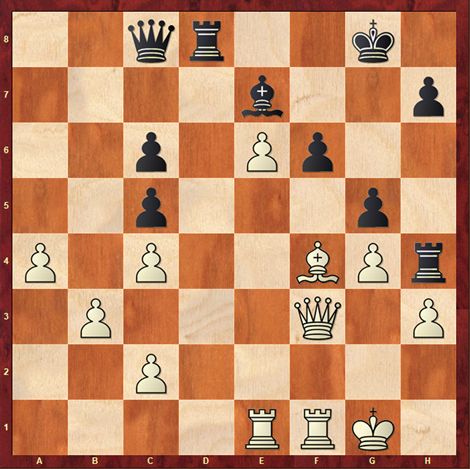
Lesson: Always consider all Forcing Moves!
Game 6: Ashwin vs. Udo Schneider (1761)
My opponent offered a draw after move 12 but I decided to play on as there were other events in which I did this mistake in equal positions and ended up doing badly in subsequent rounds (maybe because of guilt!) - gained an overwhelming positional advantage and was a pawn ahead as well few moves later!
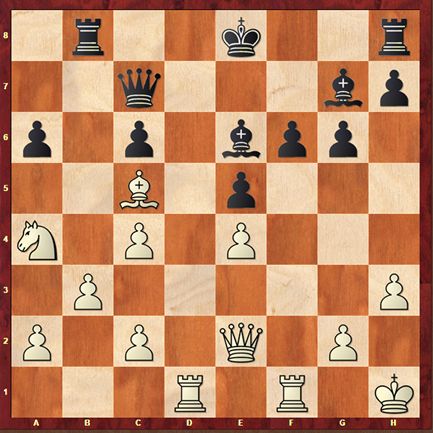
Lesson: Never accept quick draws in equal positions.
Game 7: Marc Gautier (1794) vs. Ashwin
I was playing against one of the top seeds in my category – struggled in the opening again but with Black solved all my opening problems and even won a pawn! And then I relaxed momentarily with 30…Qf4 (although not a bad move I got unsettled a bit after he played Rxb7). Rd7 first would have been even better allowing no counter play.
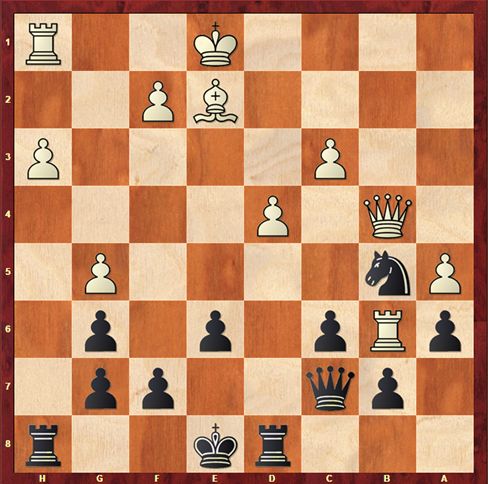
And in the same game after a few moves we reached the below position.
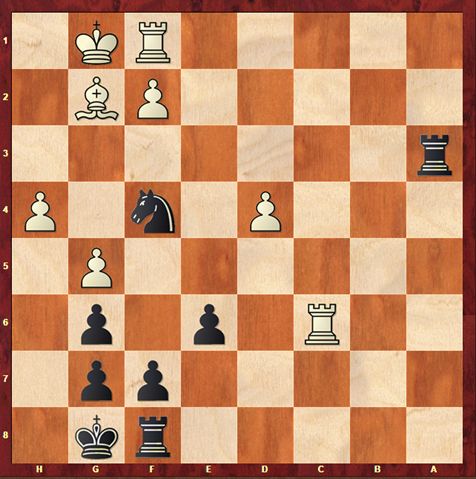
Lesson 1: Don’t relax in better positions and do not allow counterplay!
Lesson 2: Win material when you can easily do so!
Game 8: Jan Endelund Knudsen (1683) vs. Ashwin
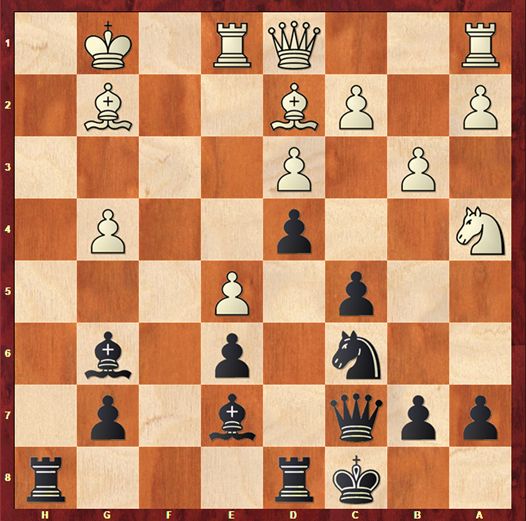
Another of my favorite moments in the tournament – reached this excellent position with Black (castled opposite side and opened up his K pushing h5 and also opening the f-file). Here 19… Bd6, 19… Nxe5 and 19… Bh4 all win! I mainly saw Nxe5 but couldn’t calculate everything so decided to go with 19…Bh4 and won the game. I was surprised to find that even Bd6 wins!
Lesson: When attacking the King opening lines is key and its worth sacrificing material if you can get your Queen closer to the opponent’s King!
Game 9: Ashwin vs. James Schilton (1788)

The last round and it was “must win” if I had to win the tournament! Here I won a pawn with 14. Qxg7. But after 14… Bf6 I quickly played 15. Qg4. But this move is much worse compared to 15. Qh6 which keeps a huge advantage – with Qg4 however, Ne5 forces Q trades! After this it was a very long struggle that I eventially won after > 4.5 hrs of play – I was tempted to offer a draw 2-3 times to secure 3rd place but thankfully resisted the temptation!
Journey of an amateur World Champion:
• My earliest memory of playing chess was when I was around 7 years old. I don’t recall who introduced me to the game but I recall knowing the rules and how the chess pieces moved.
• A few months after I turned 13 we moved to Mysore (from Chennai) – while at Chennai I was very passionate about Cricket and used to train formally every weekend at a coaching center. However, at Mysore I could not find any cricket coaching center where I could resume training – this was very disappointing for me. This is when I discovered my passion for Chess – the 1990 World Chess Championship was in progress at that time and “The Hindu” had excellent coverage along with the moves. I was very curious about how Chess is played at very highest level and thus began my chess journey! I started reading a few books on chess that introduced me to chess notation, basic chess strategy, tactics and openings – all the basic knowledge needed to start playing competitively.
• While at Mysore between 1990-1992, I played at 5 tournaments. In 2 of these tournaments I did well – stood 3rd in Mysore District Chess Championship and won the 1st prize for top board in Mysore City Inter-School Team Championships. I started dreaming about a “chess career” and played at the Karnataka State Chess Tournament (’93) hoping to qualify for Nationals but unfortunately did not. At this point I gave up competitive chess to focus on my education and career.
• My daughter Anjana was born in 2005 and I introduced chess to her when she was around 3 years old - she loved the game and picked it up quickly! One of her favorite outings was to visit book stores especially Strand Book Stall near MG Road – this place had a lot of chess books and I bought almost every chess book they had at the store. Strong encouragement from my wife Aruna to resume playing, teaching Anjana chess and reading these books rekindled my interest in the game!
• During May 2012 we visited Kodaikanal – they had a chess set at the clubhouse of the hotel we stayed at and I let her beat me (she had to find a mate in 1 move) – this is one of her favorite chess moments and she now wanted to play at tournaments!
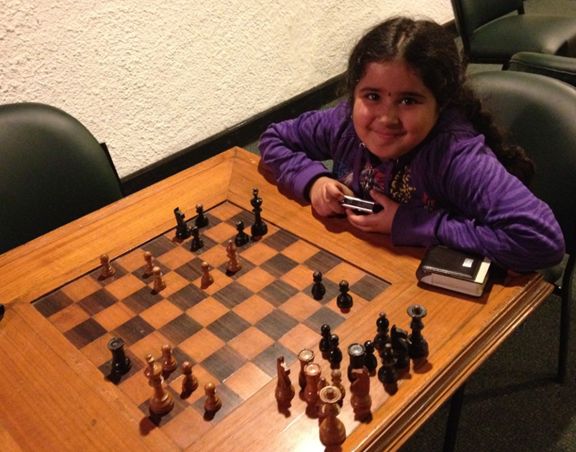
I took her to a couple of rapid tournaments organized by the Karnataka Chess Association – and while she played at U-9 category I played in the Open category. I realized I could still play reasonably well and decided to start studying/training again by investing in many more books and video training programs along with an Apple iMac running Intel Sandy Bridge for chess analysis – my iMac now has 32 GB RAM and I also invested in an Intel Broadwell based NUC with 16 GB of RAM with SSD ~2 years back!
• I somehow couldn’t play in any tournament between 2013-2016 but would train regularly for at least 2-3 hrs. each weekend. In Oct 2015, GM Igor Smirnov (Chess GM and Psychologist) visited India – I had studied a few of his chess courses and absolutely loved them so when he visited India I wanted to meet him! The Vellore Chess association organized a simultaneous chess exhibition with him with ~75 players – I was one of the 8 players who drew our game with him! Drawing my game with him tremendously increased my confidence in my abilities and motivation to train/play more! It was around this time that I discovered the ACO World Amateur Chess Championships in the New in Chess Magazine and decided that we (Anjana/I) should play here within the next few years!

• During Dec 2016 as we were planning our summer vacations I discussed visiting Greece with my wife Aruna along with possibly playing the ACO WACC 2017 event at Kos Islands. We definitely wanted my daughter to play in Group G (0-1200) and I wanted to play if the organizers allowed me to play in Group D (1600-1800) based on my online ratings although I did not have an official Chess ELO rating. They kindly allowed me to play in Group D – I started the tournament very well with 3/3 (3 wins) in the first 3 rounds, 4.5/6 (3 draws) in the next 3 rounds (still within top 3) and finished badly with 1/3 in the last 3 rounds (1 win, 2 losses) to finish 13th (out of 88 participants). It was disappointing that it ended badly after a great start but my overall performance was much better than I thought I could!
• During Aug 2017, ChessMine organized India’s strongest Rapid + Blitz Chess event. I played at the Rapid event and won the Best Unrated Player award (finished joint 1st-2nd with another unrated player with 6/10 pts) amongst 171 unrated players (466 participants). It was a great experience playing at the event and also meeting several top Chess GM’s/IM’s at the event!
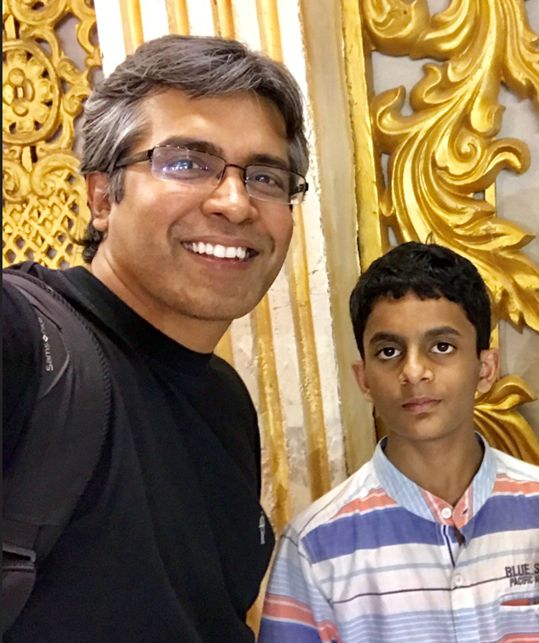
• At ACO WACC 2017 we received an invitation to visit the absolutely wonderful Global Chess Festival at Budapest in Oct’17, organized by Judit Polgar, who is considered the greatest female chess player ever! We gladly accepted the invitation as Judit was one of my favorite chess players and I thought it would be a huge inspiration for my daughter Anjana as well to meet her! Anjana and I played a simultaneous exhibition with Judit that we both lost. In addition, I also played a Business + Artist closed (by invitation only) chess tournament - I finished joint 4th-5th amongst 10 players at this event – not a great result but this was one of our best experiences overall! I lost my final round game with Erno Mesterhazy but it was a “scary” experience with GM’s Judit Polgar, Sofia Polgar and Mihail Marin watching our game!
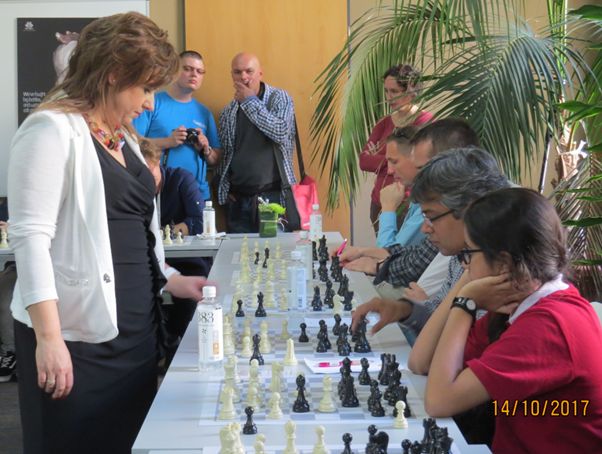
FAQs on Amateur Chess Organization (ACO):
What is the ACO?
The Amateur Chess Organization is the organization for amateur chess players up to 2400 rating points.
For whom has the ACO been founded?
99% of all chess players have got less than 2400 rating points and do not earn a living from chess. The ACO has been founded for this biggest group of chess players, the amateurs.
Why has the ACO been founded?
As the vast majority of chess players are amateurs and as there has been no chess organization in the past that exclusively represents the interests of amateur chess players, the establishment of the ACO was a necessary consequence. ACO brings chess together with joy and fun. This is done with outstanding ACO World Championship, a new Chess Community, social international exchange, promotion of Youth and Scholastic chess, introduction of chess leagues without club structures and much more.
Is ACO connected to FIDE?
No. The ACO is a completely independent organization. The ACO considers itself as a complementary organization but without restricting federal structures.
Who can participate in the ACO World Amateur Championship?
Every chess player below 2400 rating is allowed to participate.
Where is the ACO located?
The Amateur Chess Organization has its headquarters in Stuttgart, Germany.

